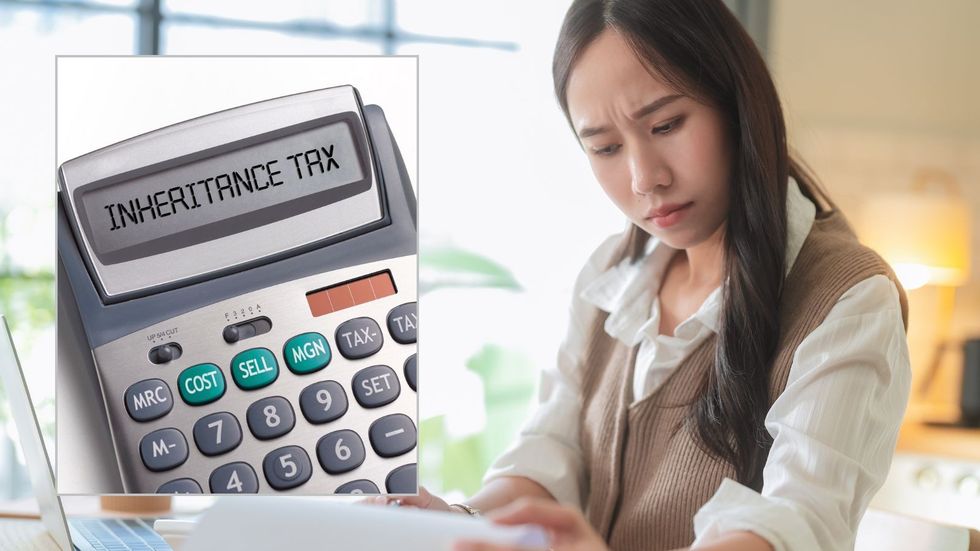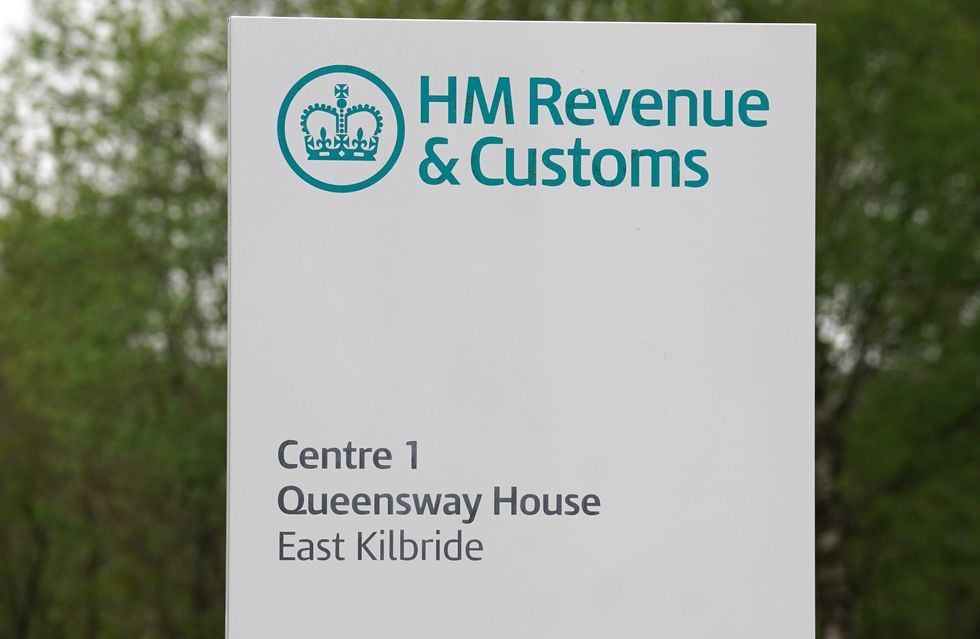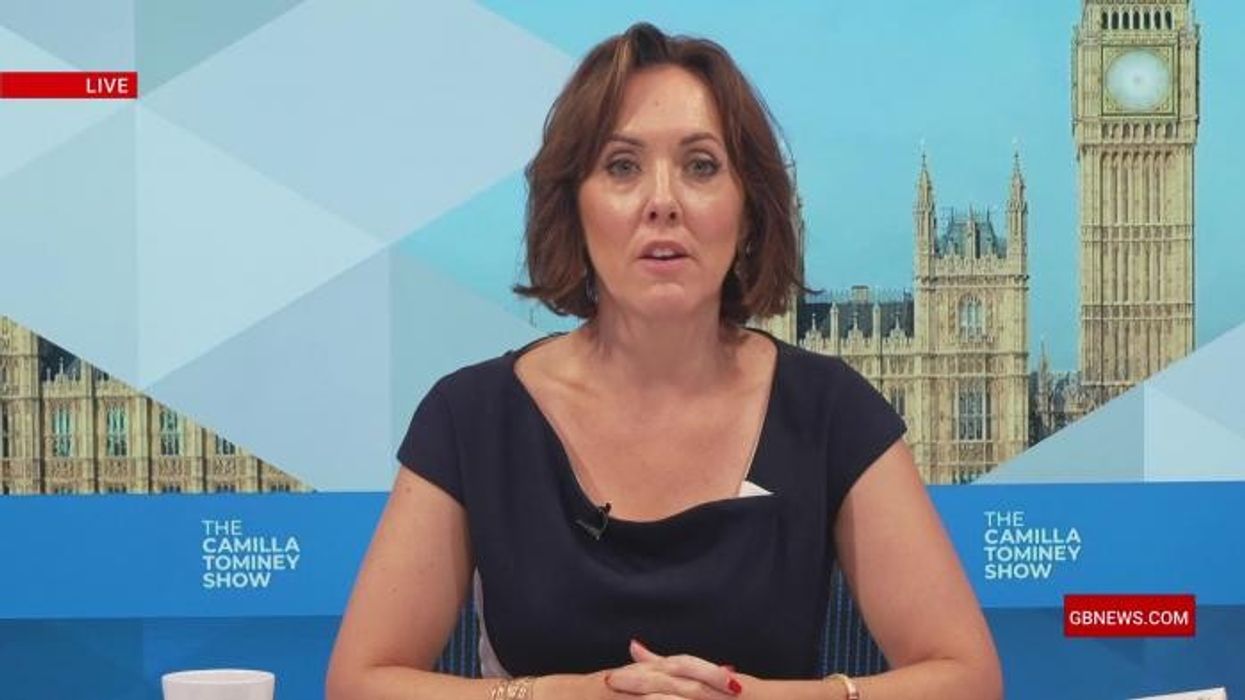Inheritance tax crisis as thousands of Britons slapped with £500k bill on 'hard-earned wealth'

Inheritance tax is a levy on the estates of individuals who have passed away
Don't Miss
Most Read
More than 2,500 estates paid inheritance tax (IHT) bills exceeding £500,000 in the 2021/22 tax year, representing nine per cent of all estates subject to the levy, according to Freedom of Information data secured by wealth management firm Rathbones.
The figure marks a 29 per cent jump from 2018/19 levels, with 1,630 estates paying between £500,000 and £999,999 whilst another 890 paid more than £1million, HM Revenue and Customs (HMRC) figures found.
Should current trends persist, projections suggest approximately 3,524 estates could face inheritance tax bills above £500,000 by the close of the 2025/26 tax year, based on an average yearly growth rate of 8.74 per cent.
The inheritance tax nil-rate band has remained frozen at £325,000 since 2009, whilst the residence nil-rate band has stayed at £175,000 since 2017, resulting in fiscal drag.

Thousands of households are paying up to £500,000 on inheritance tax
|GETTY
This prolonged freeze to the threshold has created a stealth tax increase as property values and other assets have appreciated significantly over the same period of time.
Rebecca Williams, the divisional lead of Financial Planning at Rathbones, describes this as "a creeping form of fiscal drag" that has steadily drawn more estates into inheritance tax liability.
"As house prices and asset values have steadily risen, more estates are being brought into the IHT net simply because the thresholds haven't kept pace with inflation," she explained.
The inheritance tax landscape faces further upheaval from April 2027, when pension assets will fall within the scope of the levy for the first time as per the changes announced during Chancellor Rachel Reeves's Autumn Budget last year.
Do you have a money story you’d like to share? Get in touch by emailing money@gbnews.uk.
 The standard inheritance tax rate is 40 per cent above the £325,000 threshold, which many Britons are being pulled into paying | GETTY
The standard inheritance tax rate is 40 per cent above the £325,000 threshold, which many Britons are being pulled into paying | GETTYResearch by Rathbones reveals that 31 per cent of pension holders are already reducing their contributions in response to the planned changes, forgoing the tax benefits of pension saving.
The funds previously earmarked for pensions are being redirected, with 39 per cent of respondents planning to place money in savings accounts and 25 per cent opting for equity ISAs.
Property investment has emerged as another alternative for Britons with 14 per cent of those surveyed indicating they have already shifted their focus to this asset class.
Williams highlights the dilemma facing families as they navigate these tax changes, noting that "parents and grandparents are increasingly aware of the IHT bill they might be leaving behind".
Many are seeking to provide financial assistance to younger relatives whilst they are still alive, particularly for education costs and property purchases, rather than leaving larger inheritances.
"The Bank of Mum and Dad is under pressure," Williams noted. She cited that "clients are walking a line between supporting children today, having enough for later life care tomorrow and not wanting to give the Treasury too much of their hard-earned wealth on death".
LATEST DEVELOPMENTS:

Inheritance tax bill receipts continue to soar, according to HMRC figures
| PAThe latest inheritance tax data published from HMRC found receipts for May 2025 came to £1.5billion, which is £98million higher than the same period last year. This represents an increase of seven per cent on the same month the year prior.
Ian Dyall, the head of Estate Planning at wealth management firm Evelyn Partners, said: "“One way to mitigate IHT is through lifetime gifting, something clients are increasingly approaching us about in a bid to protect their beneficiaries from tax.
"Making regular gifts using the ‘normal expenditure out of surplus income’ exemption is one popular option, as is exploring longer-term gifting plan, such as starting the ‘seven-year clock’ ticking on larger gifts.
"How long clients can take advantage of these options remains to be seen. The Government may choose to overhaul the gifting regime at some point, potentially extending the seven-year rule to 10 years – a move that would create an extra hurdle for those wanting to pass on wealth in a tax-efficient way."
More From GB News











